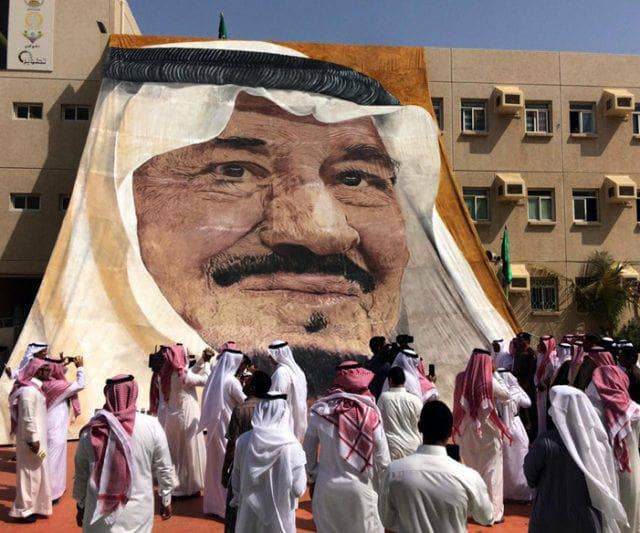
In recent years, the removal of statues has sparked global debates about history, identity, and representation. However, in many Muslim-majority countries, statues of national leaders continue to stand publicly, symbolizing their enduring legacies and contributions to their nations’ struggles and development.
Recently thousands of statues of Bangabandhu Sheikh Mujibur Rahman, the founding father of Bangladesh, and many national heroes have been demolished by the Islamic militants in Bangladesh because the Statues are forbidden in Islamic Laws but more than dozens of Muslim majority countries have publicly displayed the statues of their national heroes symbolizing their contributions in obtaining their freedom and development of their countries.
Below are the images of the statues of the national heroes in their respective countries.
⁃ Saudi Arabia: Large Portrait of King Salman
⁃ Kuwait
⁃ United Arab Emirates
– Turkey: Mustafa Kemal Atatürk
– Pakistan: Muhammad Ali Jinnah
– Bangladesh: Sheikh Mujibur Rahman
– Malaysia: Tunku Abdul Rahman
– Indonesia: Sukarno
Each section will provide a brief overview of the leader’s significance, their role in the country’s history, and the significance of their statue remaining in a public space.
The statues of these national leaders serve as a testament to their lasting impact on their countries’ trajectories. They remind citizens of the struggles, values, and principles that shaped their nations, fostering a sense of national pride and unity. As the world grapples with the complexities of historical representation, these statues stand as enduring symbols of leadership and legacy.
Here are some Muslim-majority countries where statues of their national leaders are standing publicly:
1. Turkey – Mustafa Kemal Atatürk ( numerous statues across the country)
2. Pakistan – Muhammad Ali Jinnah (various statues, including the iconic Quaid-e-Azam Monument in Karachi)
3. Bangladesh – Sheikh Mujibur Rahman (multiple statues, including the Bangabandhu Memorial Museum in Dhaka)
4. Malaysia – Tunku Abdul Rahman (statues in Kuala Lumpur and other cities)
5. Indonesia – Sukarno (statues in Jakarta and other cities)
6. Egypt – Gamal Abdel Nasser (statue in Cairo)
7. Tunisia – Habib Bourguiba (statue in Tunis)
8. Algeria – Houari Boumédiène (statue in Algiers)
9. Morocco – Mohammed V (statue in Rabat)
10. Kazakhstan – Nursultan Nazarbayev (statue in Astana)
11. Uzbekistan – Islam Karimov (statue in Tashkent)
12. Azerbaijan – Heydar Aliyev (statue in Baku)




